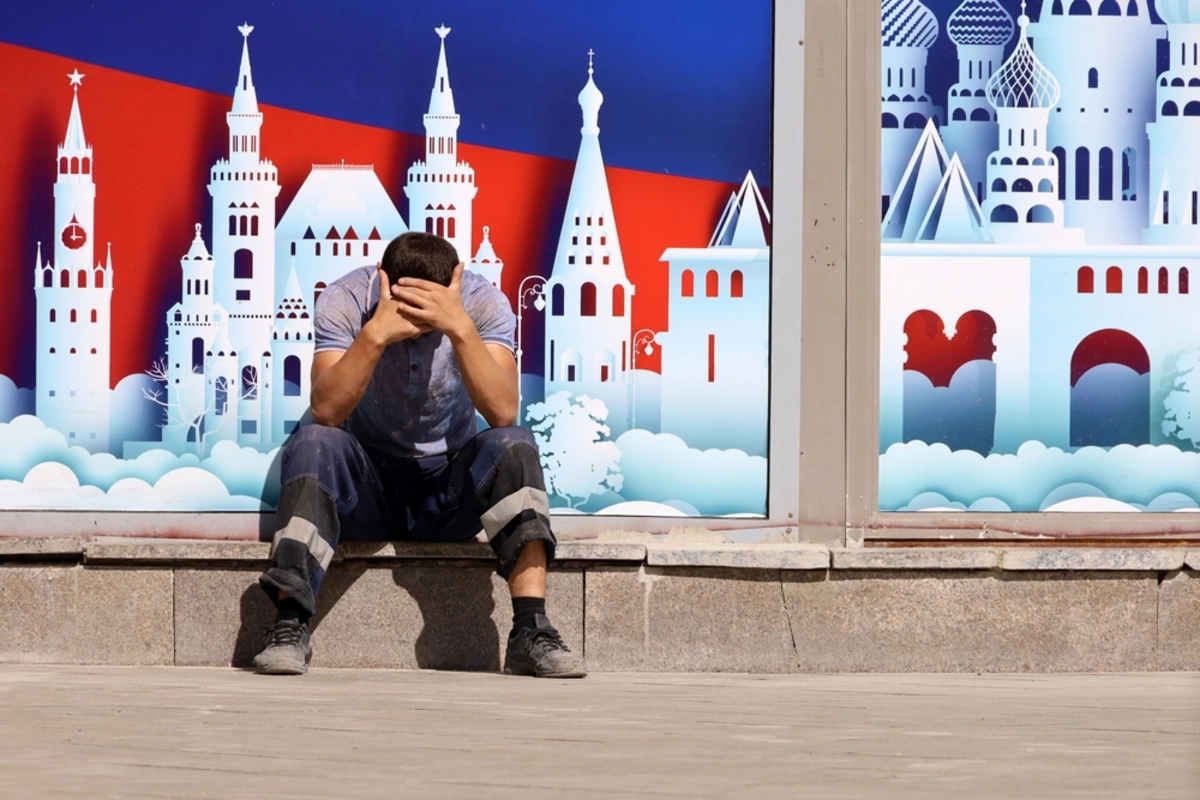
Uzbekistan is implementing a new strategy that appears to promote and manage labour migration in any direction except Russia.
Image: Oleg Elkov/Shutterstock
(Eurasianet) Uzbekistan is implementing a new strategy to regulate labor migration. Its underlying philosophy appears to be ‘steer clear of Russia if at all possible.’
That goal, of course, won’t be achieved anytime soon. Russia will likely remain the primary destination for a large majority of the hundreds of thousands of Uzbeks who leave the country each year in search of work.
Uzbek labor migration numbers have reportedly declined over the past decade-plus. In 2010-2014, upwards of 4 million Uzbeks were estimated to work abroad; today the estimates range from 2-3 million, according to Uzbek media reports.
The new measures strive to reduce the level of illegal labor migration. Upwards of 90 percent of migrants go abroad without formal work authorization.
Those working abroad account for a significant share of Uzbekistan’s economy. According to World Bank figures, Uzbek labor migrants sent home $16.7 billion in remittances in 2022, an amount equivalent to 21 percent of GDP. Numbers fell significantly in 2023, but are still substantial.
A decree issued by Uzbek President Shavkat Mirziyoyev in early April significantly expands the authority of the government’s External Labor Migration Agency. One of the decree’s key provisions is the establishment of diplomatic attachés at a host of Uzbek embassies abroad to promote and manage Uzbek labor migration. The countries specified in the decree are United Kingdom, United Arab Emirates, Hungary, Germany, Latvia, Poland and Japan.
Although unarticulated, the decree’s phrasing indicates that the Uzbek government is doing what it can to point labor migration in any direction except north, towards Russia.
In the weeks since the decree’s publication, Uzbek officials have signed labor-migration agreements with several foreign states. For example, the UK has agreed to accept up to 10,000 Uzbek medical professionals to work as support staff at hospitals and clinics across Britain, according to an April 28 Uzbek report. Another deal has created 390 openings for Uzbek workers at Volkswagen and Volvo facilities in Slovakia, according to Radio Ozodlik, RFE/RL’s Uzbek-language service.
Such agreements, which cover highly skilled workers, will benefit only a small percentage of Uzbek labor migrants. Most Uzbeks heading abroad, especially those going to Russia, are unskilled and work mainly in menial jobs in such fields as construction, transportation or janitorial services.
The decree strives to improve the lot of this legion of unskilled Uzbek labor migrants. Those who register with a government platform, titled Jobs Abroad, will become eligible to receive health insurance and welfare assistance if they encounter employment troubles abroad. Returning labor migrants can tap into job training and placement services. The state will provide subsidies to enterprises in Uzbekistan that employ returning migrants.
Labor migrants who experience harassment, discrimination and/or violence while abroad can gain access to legal aid to seek redress of their grievances. The decree tasks the Ministry of Employment with developing procedures and systems to implement the decree’s provisions by this summer.
Authorities also want to improve conditions for the families that labor migrants leave behind. The decree instructs the National Social Protection Agency to develop a system by the end of 2024 to provide social support services and financial assistance to labor-migrant families. The decree calls for regular check-ins by social workers to ensure the well-being of children.
Where the funding will come to support all the new services mandated by the president is anyone’s guess. The decree glosses over finances.
Although not stated, the decree seems motivated in part by changes taking place in Russia, in particular a shift in Russians’ mood toward Central Asian labor migrants since the late March terrorist tragedy at Crocus City Hall in Moscow, in which Tajik nationals are accused of killing over 140 innocent civilians. Instances of harassment and violence against migrants have spiked across Russia since then.
On one level, the decree shows the Uzbek government is interested in defending the rights of citizens working abroad. But some provisions also suggest that officials in Tashkent worry about potential consequences of rising Russian hostility towards Central Asian guest workers. Specifically, the decree exudes a sense of concern that some Uzbek migrants could become radicalized within the cauldron of hate currently bubbling in Russia.
Some of the decree’s provisions, especially the monitoring of children by social workers, appear aimed at providing authorities with early warning about potential radicalization candidates. Likewise, the assistance provisions for labor migrants abroad can be seen as an attempt to forestall feelings of alienation and frustration among those who encounter difficulties. Such feelings are often a precursor for radicalization, according to experts.
Analysts with the International Organization for Migration (IOM) and other agencies tracking labor migration say that adverse working conditions in Russia historically have played a role in incubating radicalization among vulnerable segments of Central Asian labor migrants.
Piotr Kazmierkiewicz, an IOM expert on Central Asian migration patterns, said in an interview published by the organization that the underlying conditions enabling labor migrant radicalization tend to shift along with the changes in the political and social environments in the hosting country.
“Typically, radicalization occurs in Russia,” Kazmierkiewicz added. “Vulnerable groups include alienated youth, who have no social or community support, those with low levels of religious education and little prospect for advancement, and youngsters who get involved in crime, or hang out with criminals.”
Share on social media
Uzbekistan is implementing a new strategy that appears to promote and manage labour migration in any direction except Russia.